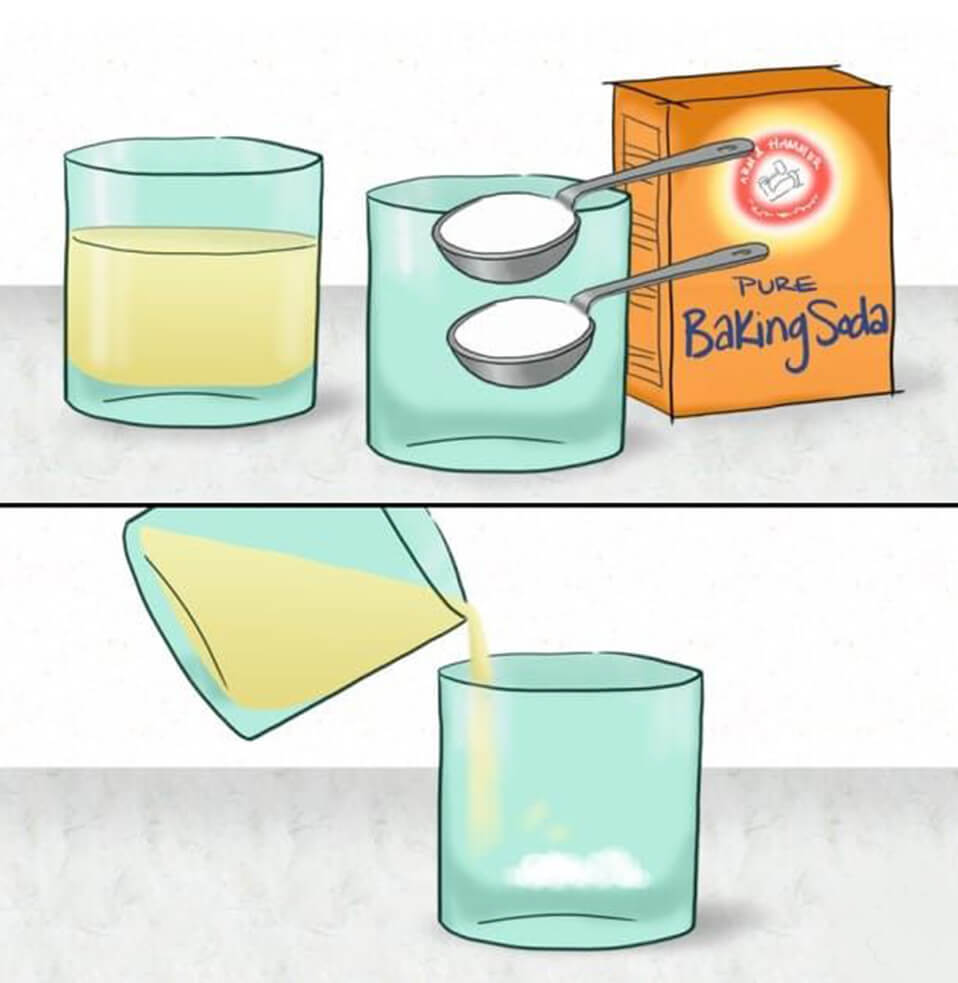
Your period has been delayed for a couple of days now. You are experiencing somebody changes related to pregnancy like fatigue, headache, nausea and vomiting, constipation and mood swings. Are you suspecting that you are pregnant? Or you are having a second thought that it is just a mere reaction of the body to some hormonal reaction to delayed period? You want to know the answer right away, but you are anxious that anyone will know until it is not confirmed.
If you are hesitant to visit the doctor or you don’t have the time to buy a pregnancy test kit in the pharmacy for the moment, worry no more. There are instant, alternative pregnancy tester that you can use in the comfort of your home with materials commonly available in your kitchen. One of these natural substitutes is the use of sodium bicarbonate, or most commonly known as baking soda. Yes, you read it right, the lowly and humble baking soda.
Baking soda has been known to be one of the staples in every kitchen. It is one of the most important ingredients in baking as it leavens baked goods. It helps tenderize meats and thickens sauces. It is effective in household cleaning and deodorizing. It is also safe to use in teeth whitening, as deodorant, adds volume to the hair and serves as a simple cure to itchy skin and calluses.
It may not be known to many, but baking soda can also be used to test if you are pregnant or not. It can be used to detect the pregnancy hormone hCG which is present in the urine during the early pregnancy period. It is commonly used in some Asian countries to confirm pregnancy. It is readily available, simple and affordable.
How to do it?

Here’s what you need to perform the pregnancy test using baking soda.
About a spoon of baking soda
1 clean, dry, disposable cup. Do not use metal containers because they may produce a chemical reaction that may alter the result.
A fresh urine sample from the subject. Preferably from the first one in the morning.
Here’s how:
Wash hands so as not to contaminate the urine sample. Put urine in a cup. You can now add a spoon of baking soda. Wait for a few minutes for the reaction.
The verdict:

If a fizzy or bubbly reaction is present in the cup, it’s positive, you are pregnant. But if there is no reaction, it’s a negative. You are not pregnant.
You can try doing the test again should you have any doubt.
How does it happen?
Baking soda is an alkaline compound. Once mixed with urine, which is an acid, it creates a chemical reaction that gives off-gas in the form of bubbles that will then make the mixture bubbly. More acid in the urine is a sign that one is pregnant. But if there is no acid in the urine, the mixture will not fizz, indicating that she is not pregnant.
Some precautions:
hCG is present in a woman’s body after implantation, which happens a week after ovulation. It is recommended to perform this test a week or more after you missed a period. Doing it earlier can yield a negative result.
The urine sample must come from an empty stomach, those that are sitting long in the bladder. It is undiluted and it contains more hCG. It is best to collect samples from the first urine in the morning.
For effective results, use baking soda from a newly open box, not from that was kept in the refrigerator. It loses strength the longer time it is left open.
How accurate is it?
To date, there is no scientific evidence of the accuracy of the baking soda to confirm pregnancy. Some of the women get the correct result, and some may not. There are cases that yields negative result at the first try, followed a positive result on their second try. It is often used because of its popularity, passing it on through time by word of mouth. Since baking soda is a natural substance, there are no harmful side effects upon using it. It is also readily available and affordable. As some people said, there is no harm in trying.
Several factors affect the result of the test. For one, the acidity level of the urine changes in the day due to food and liquid intake and some medical conditions like urinary tract infections and kidney stones. Primarily, it is not yet proven that pregnancy affects the pH level of a woman’s urine. This will all lead to a not so reliable result.
The baking soda gender test
Once you know and it is confirmed that you are pregnant, one thing that is excitingly worth knowing now is the gender or the sex of your baby. One known method is also by using baking soda. It follows the same process of using it to confirm pregnancy. Fresh, morning urine will be placed in an empty, dry cup. An equal amount of baking soda will be added. Allow some time for the reaction to take place. If the urine fizzes, the baby is a boy. Once it’s not, it’s a girl.
It is suggested to do it at least on the 16th week of pregnancy. Unfortunately, it has only 50% accuracy level, just like the chances of flipping a coin. Different factors affect the result of the process. The pH level in an expectant mother’s urine may vary depending on her diet, hydration level and the quality of the baking soda that is used.
This is just some traditional, easy, do it yourself, homemade alternative for pregnancy test kits. Others believe that is a fun, harmless test while waiting for that schedule to visit your OB-gynecologist and the availability of a pregnancy kit for proper testing.
For a more accurate result to confirm pregnancy and to reveal the gender of a child, it is still best to visit the professionals.
Read also:
- Working out while pregnant
- Tasty and refreshing fruitless smoothie recipes
- Do you consider chia seeds for pregnant women


